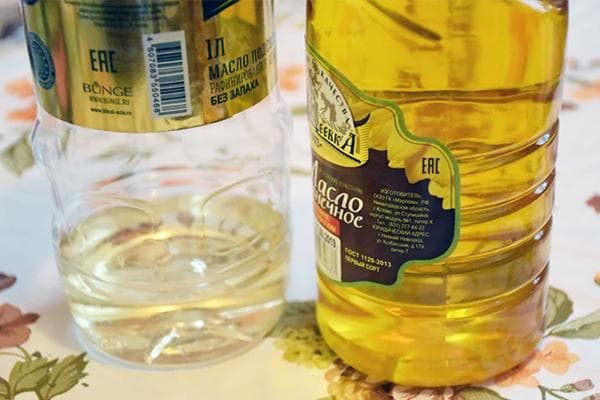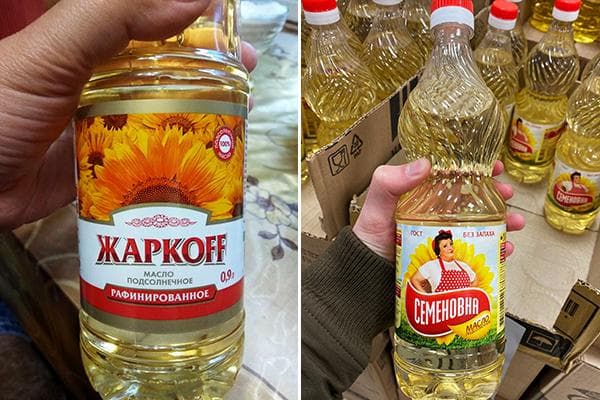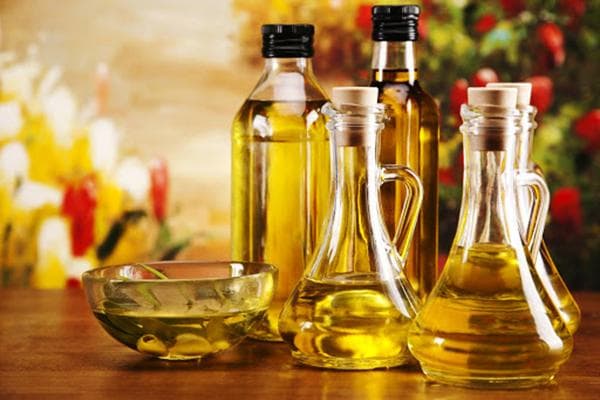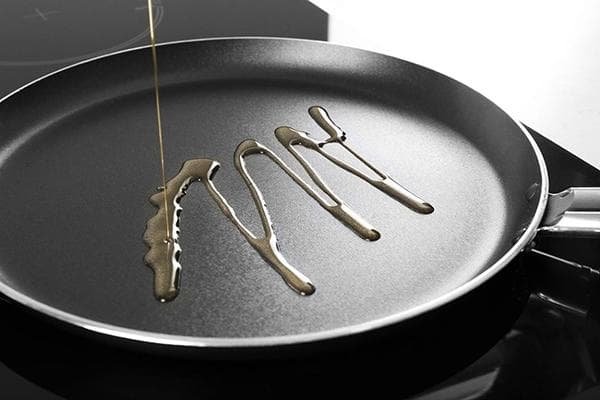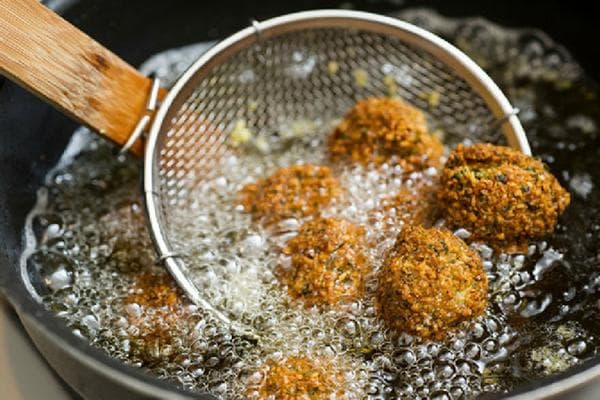Refined and unrefined oil in the kitchen - which is better and healthier?
Vegetable oil is indispensable in the kitchen - without it you can’t fry eggs, you can’t make a salad with an economical dressing, you can’t cook fish, meat, pancakes. Everyone knows that there are 2 types of it: refined oil and unrefined. These are completely different products. The first is often used in cooking and is suitable for frying and preparing various dishes, the second is used mainly for dressing salads. Let's look at the main differences between them and find out which is more useful.
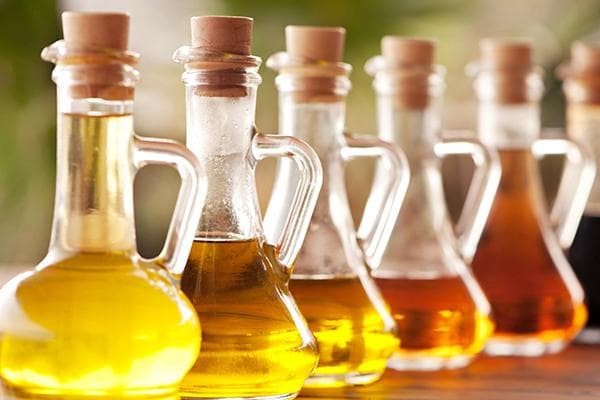
What does refined and unrefined oil mean?
Vegetable oils are obtained by processing seeds (sunflower, flax and others). Then they go through several stages of purification. Unrefined oil is the most natural product. This is compressed seed oil that has only been filtered to remove debris. “Frozen” and “cold pressed” are considered the most valuable. During the manufacturing process, they do not heat up (liquid is separated from heated seeds more easily), which means they retain a maximum of useful substances. “Frozen” also has a more pleasant taste.
Refined oil is oil that has undergone refinement or, in other words, additional purification. Phospholipids that precipitate, free fatty acids, pigments, and waxy substances that give a cloudy color, rich taste and smell are removed from it. The output is “anonymized” oil, which is stored for a long time and is well suited for frying.
5 differences
The difference between a refined and unrefined product lies in the degree of purification. The manufacturer indicates the relevant information on the packaging. But even if there is no label, the differences between them are obvious:
- Color. Unrefined oil has a rich amber color, while refined oil is more transparent and has a light golden hue.
- Smell. Unrefined is aromatic (for example, sunflower smells like seeds), while refined is odorless.
- Consistency. Unrefined is thicker, and sediment quickly appears in it. Refined – homogeneous and liquid, almost like water.
- Taste. Unrefined has the taste of seeds, refined – tasteless.
- Application. The unrefined product is used to prepare salads. Do not fry on it, because when heated, carcinogens are formed, smoke and foam appear. Refined is widely used in cooking: for frying, making dough, salads, first courses, sauces, etc.
Unrefined oil is perishable. It is stored at a maximum of 20°C. It is best to use the refrigerator for storage.
Which oil is healthier?
Both types of oils have their advantages and disadvantages. It is impossible to say unequivocally that one of them is more useful. If we talk about the content of useful substances, the unrefined product wins. And if we judge the safety and breadth of application, refined oil has the advantage.
The benefits and harms of refined oil
Refining removes the lion's share of useful elements from the product. However, not all. It still contains omega-3 and omega-6 fatty acids, as well as vitamin E. They are necessary for maintaining the health of the cardiovascular and endocrine systems, and good blood clotting.Refined oil can be called hypoallergenic because it is deeply purified from impurities. But this is not its main advantage. What is the refined product valued for:
- retains its properties when heated to 240 degrees;
- does not spoil for a long time (shelf life - from 10 months to 2 years).
The benefits and harms of unrefined oil
Any unrefined oil invariably contains fatty acids, vitamins A, D, K and E, and antioxidants. With regular use:
- the walls of blood vessels are strengthened;
- metabolism is normalized;
- the condition of the skin, hair, nails improves;
- the production and circulation of hormones is improved.
Olive oil is considered the healthiest, followed by corn, flaxseed, sea buckthorn and others. Harm from them is possible only with excessive use. There may be:
- weight gain;
- allergy.
100 ml of amber liquid contains 1000 kcal!
Use in folk medicine
The unrefined product is rich in useful substances and is successfully used to treat diseases of the skin, digestive tract, and cardiovascular system. Based on it, various cosmetics for hair and nails are prepared. Here are some popular recipes:
- Grind 1 teaspoon of calendula flowers, mix with 100 ml of unrefined oil and leave for 15 days in a dark place. The ointment is used for scars, burn marks, and frostbite.
- Mix 1 tbsp. a spoonful of unrefined oils: olive, burdock, castor, coconut, cocoa, shea. The product is used warm to nourish hair for dryness, brittleness, and hair loss.
- Reception 1 tbsp. spoons of unrefined product three times a day before meals will relieve chronic constipation and improve digestion.
What oil to fry in?
At first glance, everything is simple: you can fry in refined oil, but not in unrefined oil. There are 2 reasons for this:
- Unrefined oils have a strong aroma and taste that overpowers the natural taste of foods.
- When heated, they become hazardous to health.
Beneficial substances disappear from an overheated product, and carcinogens and trans fats are formed.
It should be noted that vegetable oils come in not only different degrees of processing, but also types. Each type has its own incandescent temperature limit:
- sunflower – 150°C;
- mustard – 160–170°С;
- olive – 170–180°C;
- peanut – 190°C.
Considering that the temperature of a heated frying pan is 160–190°C, some unrefined types can be used for frying. For example, Italians cook almost all their dishes using Extra Virgin olive oil.
When using an unrefined product, set the temperature to the minimum. If the frying pan begins to smoke and foam appears, it means that the temperature regime has been disturbed.
There is a significant difference between refined and unrefined oil. They have different aroma, taste, color, consistency. But at the same time, both types are useful and necessary. In the kitchen they do not replace, but complement each other. For the safety and good taste of food, you need to fry it with a refined product.And to improve your health, you should use unrefined oil, but only in cold and warm form, optimally as a salad dressing.
